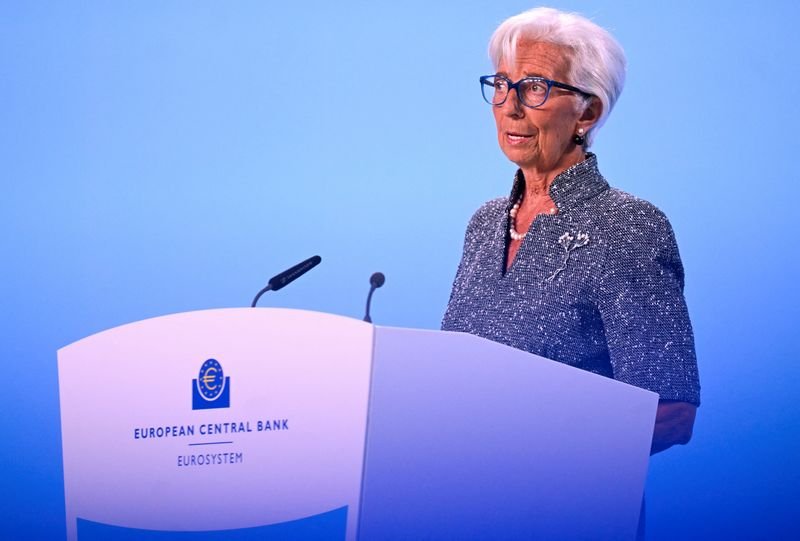ECB's Lagarde warns over cost of losing independence
Published by Global Banking & Finance Review®
Posted on January 27, 2025
3 min readLast updated: January 27, 2026

Published by Global Banking & Finance Review®
Posted on January 27, 2025
3 min readLast updated: January 27, 2026

ECB's Lagarde warns that political influence threatens central bank independence, risking economic volatility and inflation control.
BUDAPEST (Reuters) -Central bank independence is being challenged in parts of the world and greater political influence could undermined banks' ability to keep inflation down, risking economic volatility, European Central Bank President Christine Lagarde said on Monday.
U.S. President Donald Trump said last week he would demand that the Federal Reserve lower borrowing costs, claiming that he knew interest rates much better than people in charge of making that decision.
While the comment is considered more rhetoric than a plan to curtail the Fed's independence, politicians have been encroaching into an area that has generally been off limits to them for decades.
"While recent research suggests that de jure central bank independence has never been more prevalent than it is today, there is no doubt that the de facto independence of central banks is being called into question in several parts of the world," Lagarde told a Hungarian central bank conference.
The Fed is expected to keep interest rates on hold this week even as the ECB-POLICY-KAZIMIR-00b06d9b-4b99-46ce-a2aa-458d8eb2d993>ECB is likely to cut, arguing that inflation is coming down only slowly and that some policy proposals of the Trump administration could actually increase price pressures, likely drawing criticism from the White House.
Jean Boivin, head of BlackRock Investment Institute, speaking after Lagarde, said independence is not a given and managing it will be tricky.
"We haven’t been in a situation where we have to deal with inflation at such a high debt level," Boivin said. "The conflict that’s going to create to me is real."
"That independence is not something you just assert, it’s something you need to manage and that management is going to get really tricky now going forward," he argued.
Most central bank raised interest rates quickly in recent years to fight off inflation, limiting government's ability to spend just as rapid price growth eroded real incomes.
Peter Kazimir, Slovakia's central bank chief and an ECB-POLICY-KAZIMIR-00b06d9b-4b99-46ce-a2aa-458d8eb2d993>ECB policymaker, foreshadowed more conflict with governments over this inflation response.
"Finance ministers and central bank governors are not in the same boat, this temptation to play the blame game is pretty high, especially when inflation is so high," Kazimir said in Budapest.
"We were the best friend of finance ministers with very low rates. But we are not anymore."
Lagarde meanwhile warned that political interference could lead to a "vicious circle" that might result in central bank independence being undermined.
"Political influence on central bank decisions can also contribute substantially to macroeconomic volatility," Lagarde said in a video address to Hungary, where Prime Minister Viktor Orban's political ally, former Finance Minister Mihaly Varga, was appointed as the bank's next governor from March.
Gyorgy Matolcsy, Hungary's outgoing central bank chief, who clashed with Orban at times, also backed independence.
"Sometimes there will be fights, skirmishes, debates, but you have to be adamant for keeping your central bank independent," Matolcsy said.
Lagarde said that persistent political pressure on a central bank increases exchange rate volatility, and raises bond yields and the risk premia.
This sort of volatility could make it more difficult to keep inflation down, raising concerns that independent central banks are failing to deliver on their mandates, Lagarde said.
Such a sequence of events, she said, could then undermine the social consensus and further amplify volatility in the economy.
(Reporting by Balazs Koranyi and Gergely Szakacs; editing by Gareth Jones and Mark Heinrich)
The main topic is the threat to central bank independence due to political influence and its impact on inflation control.
Political influence can undermine central banks' ability to manage inflation, leading to economic volatility.
Lagarde warned that political interference could lead to a loss of independence, increasing economic risks.
Explore more articles in the Headlines category

